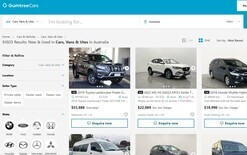Biosecurity shift may increase import costs

Social-distancing rules and limited dockside infrastructure risks increasing the cost of importing vehicles, according to Biosecurity New Zealand.
The verification of all vehicles crossing our border is now being conducted at the Ports of Auckland (POAL), including those due to be trans-shipped to other parts of the country.
Quarantine officers performed the first batch of verifications at POAL on the weekend of April 11-12 after the Ministry for Primary Industries withdrew staff from Japan in March because of the Covid-19 pandemic.
Steve Gilbert, southern regional commissioner for Biosecurity NZ, says the transition has gone well and it expects to conduct 250 vehicle verifications from April 16 through to early May.
Biosecurity NZ is also working with the imported vehicle industry to streamline future verification and audit checks.
“Conducting pre-border verification in Japan has logistical advantages,” Gilbert, pictured above, explains. “It also allows verification to be done over a longer period of time leading up to export.
“High volumes and limited infrastructure in New Zealand can lead to verification taking longer, which may increase costs for importers. Covid-19 distancing rules have also resulted in slower vehicle handling. We have also had to increase the number of verifications we do to ensure vehicles meet biosecurity requirements.
“We have strict controls in place to mitigate any biosecurity risks from the process. We’re working closely with industry to maximise biosecurity compliance and to minimise potential costs.”
Gilbert says Biosecurity NZ’s quarantine officers are normally deployed to Japan for six months at a time. This means the organisation has staff ready to deploy as necessary and this helped in the recent transition back to New Zealand.
He adds all verification is currently being conducted at POAL because “while Biosecurity NZ can carry out verification at other ports, there is limited vehicle-related infrastructure”. A team carries out planning in advance vessels arriving and another group conducts desktop verifications of documents and records received from Japan. Upon a ship’s arrival, teams of up to 12 quarantine officers verify vehicles each day.
“The process itself is working well but there are some key learnings about how together with industry we can gain some efficiencies,” adds Gilbert.





